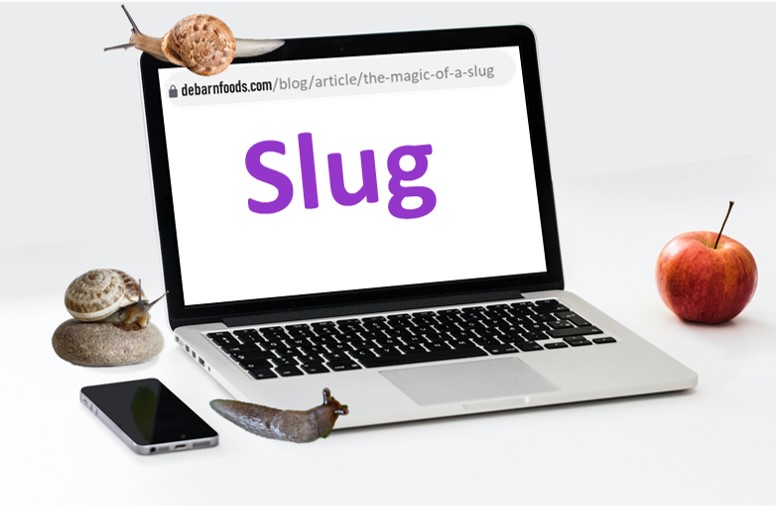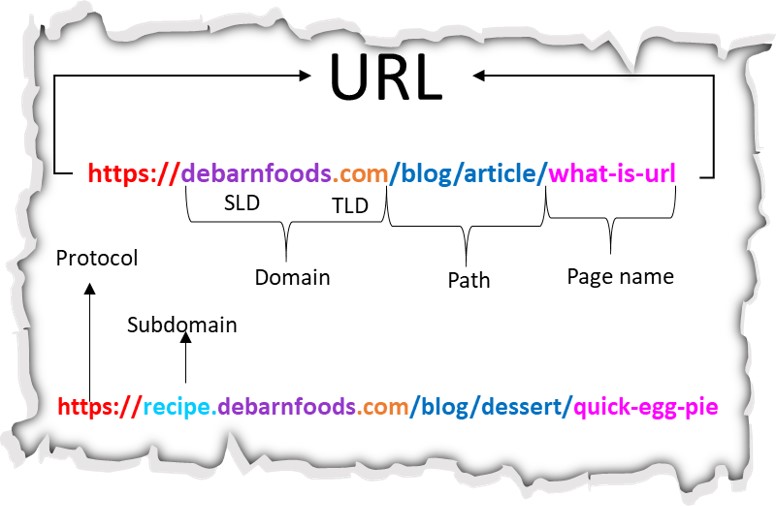The Magic of a slug
A webpage slug leaves a slime trail just like a land slug. This slime trail allows search engines to easily locate the webpage.
By: Janet Hall
2019-09-06 | [2-min-Read]Slugs are very useful in internet search. It allows search engines to know exactly what a page is about thus matching the right content to search terms. A webpage slug leaves a slime trail just like a land slug. This slime trail allows search engines to easily locate the webpage, thus increasing your website visibility and traffic.
What is a Webpage Slug?
Just like a primary key in a database, a slug uniquely identifies a page on a website. It does not contain numbers and letters or some long unending code; instead, it contains useful information about the contents on a page and is attached to the last part of a URL.If you have an article by the name of “how to stop intense menstrual pain forever”, then consider using words from the title as a slug, keeping in mind the keywords you want to rank for. Your keywords could be “menstrual”, “pain”, stop” The slug could be “stop-intense-menstrual-pain” or “stop-menstrual-pain”. A person would prefer to click https://debarnfoods.com/blog/article/watch-the-words-you-speak instead of www.debarnfoods.com/blog/article/17856934567239. Therefore, a slug quickly summarizes contents of a webpage to the reader as well as to the algorithm within a search engine.
Why are Slugs used in URLs?
SEO stands for search engine optimization. It is the process of ranking webpages based on their content. Whenever a search is done online using a search engine such as Google, the webpages that are more relevant to the search is shown on the result of the first page or at the top of the first page. This is where a slug comes in to play. If the slug contains the search term, then the webpage with that slug will be shown on the first page of the search result or at the top of the search result.- A slug indicates what a webpage is about Since a slug uniquely identifies a webpage based on its content, then each webpage should have their own slug. The slug should give a brief summary of the content on the webpage in less than ten (10) words. You can include the tags that you want your website to rank for in the slug.
- A slug creates reader-friendly URLs Just as how you would need your friends’ address in order to visit them, webpages also have addresses to help you locate them. This address is known as the Uniform Resource Locator (URL). The URL makes it possible to locate a webpage on the Internet. An example of a URL is https://debarnfoods.com/blog/article/what-is-url.
Sometimes the search result contains the URL of the webpage. The above URL is reader-friendly and is more likely to be clicked on because it contains the search term – URL - and is in line with what the user is searching for. A slug makes a URL more reader-friendly because it is shown at the end of the URL with the specific term (s) that the user can read and relate to.
How to create effective slugs
- Write and rewrite until it is right The title of an article sometimes contains certain keywords that you want to be ranked for. Rewrite the title with three to six words and try to eliminate certain words. Take for example the title “The Magic of a Webpage URL Slug”. Therefore, we rewrite the title to: “The Magic of a URL Slug” which is short and catchy.
- Summarize your content A slug should describe your webpage content in less than five (5) words. That is why you should write and rewrite until you come up with the most effective title. Then use this tool: h-supertools to find possible keywords that you can use free of cost no strings attached.
- Be consistent
- Stick to the rule when writing slugs.
- Lowercase letters only
- Use a dash to separate words
- Keep words at minimum - five (5) words or less
- Use your database to check for duplicate slugs
The keywords in your slug should give a brief description of your webpage content. We decided on three keywords: Webpage, URL and Slug. These are the words we want to be ranked for whenever a person uses any of these words in a search engine. We put these words in h-supertools.com keyword research tool and chose: “url slug” as our preferred keywords. Therefore, the slug is “url-slug” which is describe exactly what this article is about.
Hey Dear!
I love it when you read my blog. Your presence encouraged me to keep writing.
Hope you learn something new today and I sincerely aploigise if my article offended you in anyway. All my articles are related to my own experices,
struggles and enthusiasm.
I would love to hear from fantastic people like you,
please give me a shout out over on Instagram, Twitter and/or LinkedIn and tell me what you would love to hear.
I would really appreciate it.
Have a great day!



 Tech | 3-min-Read
Tech | 3-min-Read